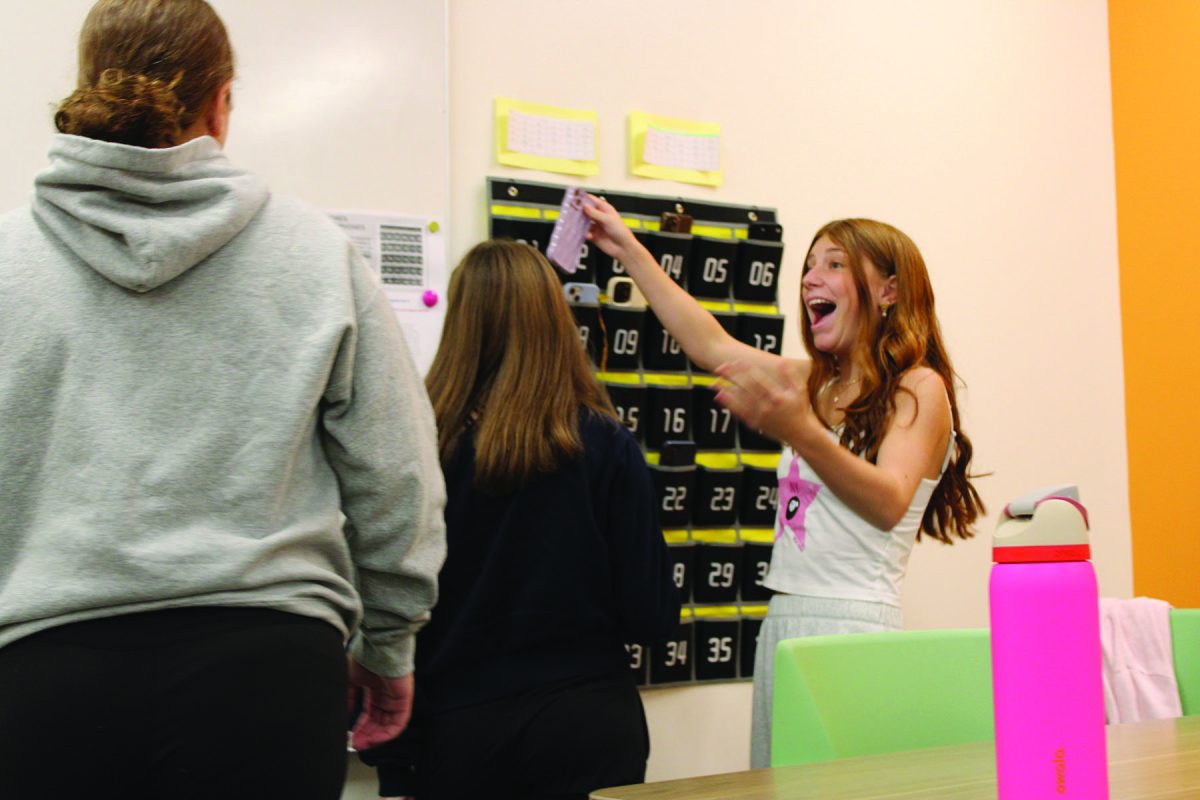The school’s new phone policy generally helps senior Tracy Agan feel more focused, aside from one class where she sits next to the phone caddy.
“I constantly have to hear everyone’s phone buzzing the entire class, and so that’s really distracting,” Agan said.
Starting the 2024-2025 school year, the district implemented a new policy for cellphone caddy usage in all classrooms to address concerns about achievement, engagement and wellbeing.
“There’s a lot out there about how cell phones and social media and everything are also causing stress and anxiety for students,” said Bob LeBlanc, science teacher and instructional coach. “All the adults in these buildings are really here because there’s things like enjoying their subject matter or the clubs they do, but they’re really here because people like to help students learn, understand [and] grow right into awesome, amazing adults after they leave the Glenbrooks. And it kind of became clear that [having phones] in class was getting in the way of that.”
According to Agan, she goes through a bit of withdrawal when her phone is taken away.
“When I get it back, I just feel the urge to overconsume instead of pacing myself throughout the day,” Agan said.
According to Alejandro Lleras, professor of psychology at the University of Illinois and Associate for Inclusive Excellence in the College of Liberal Arts and Sciences, people get a hormonal hit every time they receive a notification.
“Your brain is literally expecting pleasure or expecting this hormonal response to communications,” Lleras said.
Meghan Bargar, assistant principal of the deans, served on a committee consisting of administrators and staff to create an updated cellphone policy.
During the meetings, the committee talked to a lawyer to set a baseline of what the district could and could not do, discussed ways to modify the previous policy and talked about how they would implement the policy, Bargar said.
Bargar said she has gotten positive feedback from kids about the new policy who say they don’t feel pressured to always be on their phones.
“It’s nice [for students] to have the phone away for 90 minutesand not feel the pressure to constantlyrespond and not feel like [they] need that instant gratification all the time,” Bargar said.
According to LeBlanc, his interactions with students have been more positive following the implementation of the new policy.
“There’s more kids talking during passing period,” said LeBlanc. “I know that sounds silly, but that’s kind of cool. You hear a conversation, what’s going on, and people aren’t just staring into their own little world, which is cool too.”
According to Agan, she now collaborates more with her classmates.
“I do think people are being more social without their phones,” said Agan. “There’s more conversations at the beginning of class for group projects and stuff. It’s not just everyone sitting on their phones and not talking. We’re actually collaborating more, which is nice.”


